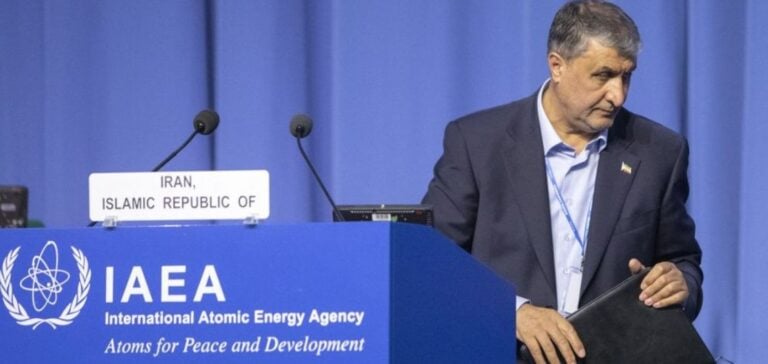Rafael Grossi, Director of the International Atomic Energy Agency (IAEA), has issued an urgent appeal to Iran for concrete action to improve cooperation. He stressed that the current situation, marked by minimal cooperation, is not satisfactory, despite previous agreements. At a conference in Isfahan (Iran), Grossi stressed the need to resolve nuclear disputes. An important issue at a time when the Middle East region is going through difficult times. The war between Israel and Tehran-backed Hamas is also fuelling these concerns.
Minimum cooperation and measures taken
Relations between Iran and the IAEA have deteriorated since Grossi’s visit in March 2023. Tehran has reduced the presence of IAEA inspectors and restricted access to nuclear facilities. Surveillance cameras were disconnected, and agency experts had their accreditation withdrawn. Grossi denounces this hostage-taking, adding that we must move forward and hoping for progress before the next Board of Governors meeting in June. Iran enriches uranium at a rate of 60%, close to the 90% needed for a nuclear weapon. This level far exceeds the threshold authorized by the 2015 agreement, capped at 3.67%. Tensions in the Middle East amplify fears, as Iran possesses enough material to build several nuclear bombs, according to experts.
Iranian commitments and deterioration of agreements
Iran denies the military intentions of its nuclear program, arguing that it complies with the policies of the United Nations Nuclear Non-Proliferation Treaty (NPT). However, it has gradually backed away from its commitments under the JCPOA, the 2015 agreement. Donald Trump left this agreement unilaterally in 2018, pushing Tehran to reduce its obligations.
Mohammad Eslami, head of the Atomic Energy Organization of Iran (AEOI), defends the decision, saying that Iran can reduce its commitments if other parties fail to meet their obligations. Nevertheless, he assures us that the country is ready to collaborate further with the IAEA within the framework of the NPT.
Regional conflicts and plant safety
The recent attack attributed to Israel, in retaliation for Iranian fire, has raised concerns about the security of Iran’s nuclear sites. Key facilities are located in the center of the country, in Isfahan, Natanz and Fordo, as well as in Bouchehr, home to the country’s only nuclear power plant. The development of these facilities is crucial to meeting Iran’s growing demand for electricity.
Grossi’s calls underline the importance of increased cooperation between the IAEA and Iran, as tensions in the Middle East escalate. Nuclear transparency remains central to allaying international fears and preventing regional conflicts from fuelling further instability.





















